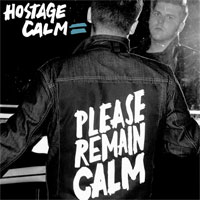
BRAZIL “The Philosophy Of Velocity”
After releasing a juvenile EP (Daesin) and a stellar AT THE DRIVE-IN-influenced full-length (A Hostage And The Meaning Of Life) through Fearless Records, BRAZIL were all over the place during 2004, touring with COHEED AND CAMBRIA, the Warped Tour, BEAR VS SHARK, and EMERY (somehow I caught each one of these). However, following all of this the band seemingly disappeared. After a bassist change, a label change, and a lot of time off, something in the progressive rock circles of Muncie, Indiana started stirring again earlier this year. BRAZIL signs with Immortal. BRAZIL starts to wear old-school tuxedos. BRAZIL records with Dave Fridmann over Alex Newport. BRAZIL becomes more progressive while leeching THE MARS VOLTA and QUEEN a bit more than expected. BRAZIL releases The Philosophy Of Velocity. The first song released for public listening from The Philosophy Of Velocity was “Crime (And The Antique Solution).” This seems fitting as it’s the lead song on the album and represents the band’s first perfect extension from A Hostage. Full of off-beat rhythms, spacey guitar distortions, those catchy keyboard notes, and the recognizable high-pitched speaking/singing of Jonathon Newby, “Crime” easily fits alongside past songs like “Escape” and “IO.” One of the largest differences between the songs here, however, lies in the production. Put simply, the songs on Philosophy sound huge in an arena-filling way. The oddest thing about this comes when listening to Newby’s vocals which are almost always subdued in the mix, giving the pulsating riffs and keyboard notes an advantage. As “You Never Know” showcases, the new bassist has a prominent role – just as Ben Hunt did on the last album – as his basslines give the song an interesting backbone. “The Vapours” is perhaps the fastest song with its aggressive vocals and poppy keys whereas “Candles (Cast Long Shadows)” is a mid-tempo affair that has a hard time taking off because of the story-telling nature of the vocals and the repeated rhythm that proceeds throughout. Just as with A Hostage, Philosophy‘s mid-to-late tracks are all of high quality with highlights coming in the obvious Queen nod “Au, Revoir, Mr. Mercury,” the soundscape heavy “Captain Manwarning,” and the classical progness of “A Year In Heaven.” Scattered among the adventurous routes are simpler songs such as “Breathe” and “Cameo,” both of which showcase BRAZIL’s ability to write a non-masturbatory progressive rock song in less than four-minutes. Perhaps BRAZIL has never truly had a sound all-their own, but they definitely have something to be proud of. For two albums now the band has succeeded in writing songs that are progressively inclined, memorable, and undeniably catchy. In the process of writing The Philosophy Of Velocity they’ve surely drawn more influence from THE MARS VOLTA (Newby still sounds a lot like Cedric) minus the lengthy psychedelic parts and Latin-based drumming. Any band with a sound slightly resembling progressive rock will always be compared to their predecessors, but in BRAZIL’s case, they shouldn’t be ashamed because they’ve continued to prove with this album that they are more than capable of writing prog tunes that you won’t need several hours in order to enjoy.
Immortal



